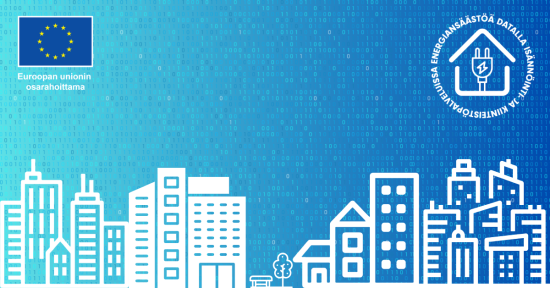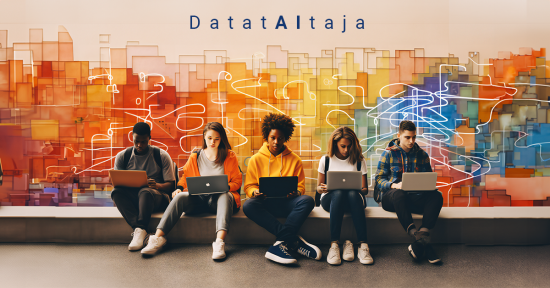The European Commission’s Green Deal development programme may currently be referred to as greenwashing, but not for long. For the EU to meet its ambitious emissions reduction targets, there must be a transparent, cost-effective way to access and share information on the environmental impact of products. The Digital Product Passport is the answer to this need.
It is a solution that makes sustainable development easier for consumers to achieve in their everyday lives. It provides transparency regarding product information, the manufacturing of products, their transport and emissions and the raw materials used.
A product passport is like a digital version of a physical object, providing accurate and reliable information about a product throughout its life cycle. The product passport supports the development of sustainable business and promotes the transition towards a circular economy.
Product passports provide information tailored to the needs of different users
The Digital Product Passport provides a variety of information, such as where the product was made, what it consists of, what raw materials were used, what was done to it, where it has been, how much it has been transported and what emissions it may have generated. Users of the information include manufacturers, end users, public authorities and circular economy companies.
“The product passport is not a file of product information copied somewhere behind a QR code, but a view that is different for different users. For example, a customs officer needs different information about a product than a consumer,” says IOXIO Oy’s CEO Pirkka Frosti.
The product passport aims to allow transparency from raw material production through product manufacturers to consumers. This makes it possible to trace the production chain verifiably. Traceability also improves product safety.
“Above all, the digital product passport is a link between the physical, individualised product and the information generated by the company and EU regulations,” Frosti says.
Why is a Digital Product Passport needed?
A Digital Product Passport is a means created by the EU of enabling reliable electronic reporting of product information. In the EU, companies must demonstrate that the environmental impact of their products is calculated and that the set environmental objectives are met.
As an example, Frosti says that the battery industry has been instructed on how much virgin raw material must be replaced by recycled raw material. The product passport contributes to the circular economy by indicating how much of each raw material the product contains.
In the future, all products sold on the EU market will need a Digital Product Passport.
“The product passport can be compared to the CE marking system. It is illegal to sell products without a CE marking in Europe,” Frosti explains.
To really put sustainability at the heart of product development, a product passport is needed.
“The requirement to open up information on manufacturing chains, from primary production to consumer and recycling, could prove to be an effective way of tackling overproduction in the clothing industry, for example, where a large percentage of products may be incinerated rather than ever reaching the shops.”
The benefits of a Digital Product Passport
The Digital Product Passport guides production towards a quality-oriented approach, where the producer must consider how to reduce energy or water consumption or how to transport products with lower emissions. This leads to resource savings, lower selling prices and ultimately better profit margins for companies.
Another benefit of the Digital Product Passport is servitisation. This allows new sustainability services to be created alongside the product, such as recycling, repair, sales or insurance.
The Digital Product Passport gives companies investing in sustainability a competitive advantage for their eco-friendly credentials. On the other hand, companies that engage in greenwashing – that is, just talking about sustainability without doing anything to further it – are no longer on a par with companies that are genuinely doing something for the good of the environment.
“In this way, environmental investments also benefit the company’s brand and competitiveness,” Frosti concludes.
What Digital Product Passports bring to different stakeholders
For companies:
- The obligation to report on environmental matters.
- The potential for a competitive edge due to proven eco-friendly credentials.
- New business opportunities through the circular economy.
For consumers:
- Greater transparency on the environmental impact of products.
- The opportunity to make responsible choices.
For the authorities:
- More effective environmental enforcement.
- Contributing to the achievement of environmental goals.
For more information on this topic, see the website of the Finnish Innovation Fund Sitra.
Collaborate with TIEKE?
Want to help organizations in themes such as digital competence, data economy, real-time economy, or sustainability? Partner with us!
TIEKE Finnish Information Society Development Centre is a non-profit organisation founded in 1981 aiming to develop, improve and support a thriving information society and all its digital endeavours.
We help organizations in various ways:
- Projects and initiatives
- Networking and ecosystem work
- Surveys and studies
- Expert services and advice
- Webinars, online trainings and coaching programmes
- Materials and guides
We have a track record working in various project roles: coordination, partner, expert, comms and more.
We run around 15 projects per year and are familiar with instruments such as CERV, Erasmus, ERDF and ESF.
We work with wide array of target groups such as SMEs, large companies, educational organizations, public sector and associations.
Don’t hesitate to get in touch to discuss collaboration opportunities with us!










